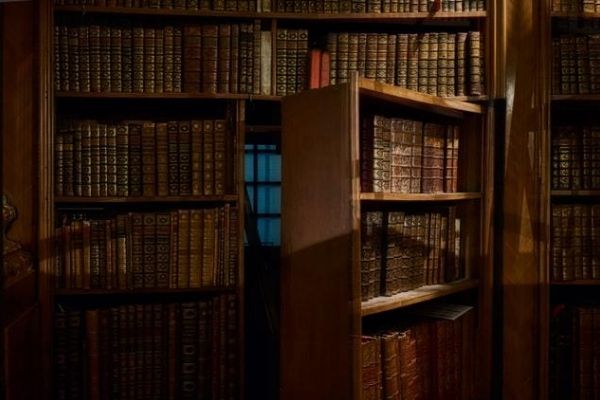
In litigation, the party may encounter a dilemma: how to use the key evidence contains confidential information that is better not known by the other party. Is it possible to keep such information confidential in litigation and to what extent can such information be kept confidential? We will introduce some appropriate measures to protect the confidential information contained in the evidence in this post.
I. Try to avoid submitting evidence containing confidential information
In China, the parties may submit evidence selectively, but once the evidence is submitted, the copy of the evidence will be obtained by the other party and the judge. The judge will keep a copy in the case file for future inspection, presentation, and examination in court by the parties. In addition, if the trial is held in public, it means that the evidence may be known by the audience (including online viewers). Therefore, the parties should be prudent when submitting evidence and try to avoid evidence with confidential information.
For the evidence involving confidential information, the parties may consider the following pros and cons at first:
1. If the evidence in question is not submitted, will the probative force of other evidence be affected?
2. To what extent can the parties tolerate the confidential information being known by others?
3. Which one matters more to the parties between the result of the case and the disclosure of the confidential information?
II. Cover up the confidential part
For the confidential evidence that must be submitted, the parties may blacken the confidential part, such as the other party of the contract, the subject matter and sensitive terms, etc., or extract non-confidential content only when preparing copies to the court. Of course, blackening and excerpt should be limited to a certain extent, which should neither affect the integrity of the whole document, nor cover up the content that plays a decisive role in judging the authenticity of the document(e.g., the formation time of the document, the official seal, the signature), so as to avoid unnecessary doubts about the authenticity of the evidence.
It should be noted that the original evidence needs to be presented to the other party in court for consistency checks. Therefore, it is unrealistic to completely prevent the other party from accessing the confidential information contained in the evidence. However, the party concerned may request the judge to explain the confidentiality obligation to both parties, and even order them to sign a non-disclosure agreement to clarify the legal consequences of disclosure. Some local courts have set clear provisions on this issue. In addition, in some cases of trade secret infringement, the court will, upon the application of the parties, prohibit the other party from obtaining copies of the evidence, and only allow the evidence to be inspected and excerpted.
III. Request the judge to narrow down the scope of evidence presentation
In some antitrust-related disputes and intellectual property cases, if there is confidential information in the evidence, some judges may allow the parties to present the evidence only to the attorney of the other party. In trade secret cases, authentication is a very common procedure (for the authentication, see our previous post for details), in which the expert opinions often need to quote the confidential information of both parties. In order to protect the confidential information, some courts have stipulated that the parties should only be informed of the conclusion without making available the specific materials to the parties; if the parties have any objection thereto, they can propose it to the court.
IV. Request a non-public court trial or evidence examination
In order to prevent confidential evidence from being disclosed to the audience, for the cases involving trade secrets and personal privacy (especially cases of trade secret infringement), the parties may apply for non-public trial or non-public examination, which will generally be supported by the court upon justified reasons. In addition, the parties can also negotiate to recognize the evidence involving secrets at the pre-trial meeting, so as to avoid examination of the evidence during the court trial.
V. What if the court orders the parties to present unsubmitted evidence?
The court may investigate, collect, preserve, or order the parties to submit evidence in their possession, thus resulting in the disclosure of confidential information in the following circumstances:
1. The court carries out evidence preservation or orders the parties to submit evidence
Under specific circumstances, the court may take evidence preservation measures to directly search and detain the evidence not submitted by the party concerned (for the evidence preservation, see our previous post for details). In addition, the court may, upon the application by the other party, order the parties to submit evidence (for the evidence presentation order, see another previous post for details). The court may detain the original evidence in the aforesaid procedure, and the evidence so obtained shall be presented in court for examination.
2. The other party applies for evidence authentication
If the other party applies for the evidence authentication and obtains the permission of the court, the party concerned needs to submit the original evidence to the court, which will transfer the same to the judicial expertise institution.
Undoubtedly, the above situations will undermine the parties’ evidence confidentiality strategy. At this time, in order to maximize the protection of confidential information, in addition to the aforementioned methods, the parties can also try some unconventional practices. For example, the parties may request the judge to require the other party to provide corresponding guarantees by reference to the provisions of evidence preservation, so as to increase its litigation cost and procure its prudent exercise of such rights. Or, when verifying the consistency between the original and the copy of the evidence, the parties may try to request the judge to inform the other party of the verification result, instead of presenting the original directly to the other party. However, there is no clear legal basis for these practices, and the non-presentation of the original evidence to the other party is likely to incur strong objection. Therefore, the parties may give it a try if necessary, but should not rely too much on these practices.
Photo by Stefan Steinbauer (https://unsplash.com/@usinglight) on Unsplash
Contributors: Chenyang Zhang 张辰扬 , Zhu Mengxuan 朱梦璇




